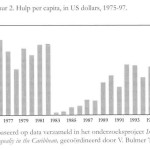Provocations By The U.S. State Department Can Chill Press Freedom In Latin America

Vijay Prashad
The headline is provocative: “The Kremlin’s Efforts to Covertly Spread Disinformation in Latin America.” This was a statement on the U.S. State Department website, posted on November 7, 2023. The United States government accused two companies—Social Design Agency and Structura National Technologies—of being the main agents of what it alleged is Russian-backed disinformation. The statement named the heads of both of the firms, Ilya Gambashidze of Social Design Agency and Nikolay Tupkin of Structura. On July 28, 2023, the European Union sanctioned several Russian individuals and firms, including SDA and Structura. The European Union accuses these two IT firms of being “involved in the Russian-led digital disinformation campaign” against the government of Ukraine. The statement by the U.S. State Department now alleges that these IT companies are involved in a disinformation project in Latin America.
Neither the European Union nor the U.S. State Department offer any evidence in their various public statements. The U.S. document does, however, refer to the 2023 Annual Threat Assessment of the U.S. Intelligence Community, which says the following: “Russia’s influence actors have adapted their efforts to increasingly hide their hand, laundering their preferred messaging through a vast ecosystem of Russian proxy websites, individuals, and organizations that appear to be independent news sources.” Here, we get mainly the methodology—laundering information through proxy websites—rather than any hard evidence.
On May 3, 2023, the U.S. Foreign Relations Committee held a hearing on “The Global Information Wars: Is the U.S. Winning or Losing?” The main speaker at the hearing was Amanda Bennett, the Chief Executive Officer of the U.S. Agency for Global Media (USAGM), an umbrella group that runs several U.S. government media projects from Europe (Radio Liberty) to the Americas (Office of Cuba Broadcasting) with an $810 million annual budget. Bennett, the former director of the U.S. government’s Voice of America, told the senators that if the U.S. government fails to “target investments to counter inroads Russia, the [People’s Republic of China], and Iran are making, we run the risk of losing the global information war.” These three countries, she argued, have “outspent” the United States in Latin America, an advantage that she said needed to be overcome by increased U.S. interference in Latin American media.
The Role of RT
In Latin America, Jessica Brandt of the Brookings Institute told the Senators, Russian media has secured a decisive advantage. The facts she laid out are worthwhile to consider: “Through the first quarter of 2023, three of the five most retweeted Russian state media accounts on Twitter messaged in Spanish, and five of the ten fastest growing ones targeted Spanish-language audiences. On YouTube, RT en Español has also proven capable of building large audiences, despite the platform’s global ban on Russian state-funded media channels. On TikTok, RT en Español is among the most popular Spanish-language media outlets. Its 29.6 million likes make it more popular than Telemundo, Univision, BBC Mundo, and El País. Likewise, on Facebook, RT en Español currently has more followers than any other Spanish-language international broadcaster.” In other words, RT by itself has become one of the most influential media outlets in Latin America. Brandt’s facts are widely accepted, including by a report published in March by the Reuters Institute for the Study of Journalism called “Despite Western bans, Putin’s propaganda flourishes in Spanish on TV and social media” and by a study from the Atlantic Council’s Digital Forensic Research Lab from 2022.
RT (formerly Russia Today) is owned by TV-Novosti, a non-profit organization founded by the state-owned Ria Novosti in 2005. RT is banned or blocked in Canada, the European Union, Germany, the United States, and several other Western countries. In fact, at the Senate hearing, there was little discussion about the entire web of RT projects. The focus was on the “laundering” of “disinformation”.
‘Most Likely’
What is striking about the U.S. State Department statement is that it names two news projects that operate in Latin America as these “proxies” without any evidence but with hesitant language. For instance, the U.S. State Department says that part of the Russian campaign is to cultivate a group of journalists “most likely in Chile,” but not definitely. This hesitation is important to underline because a few paragraphs later, the doubt vanishes: “While the network’s operations are primarily done in concert with Spanish-language outlets Pressenza and El Ciudadano, a broader network of media resources is available to the group to further amplify information.”
Pressenza, founded in 2009 in Milan, Italy, emerged out of the debates and discussions provoked by the International Commission for the Study of Communications Problems (formed by UNESCO) and its report, Many Voices, One World or the MacBride Report (1980). The MacBride report itself built on discussions about media democracy that had resulted in the formation, in 1964, of Inter-Press Services, and then later in Pressenza. El Ciudadano was founded in 2005 as part of the process of democratization in Chile in the aftermath of the fall of the military dictatorship of Augusto Pinochet in 1990.
Both outlets denied (in English and Spanish) that they are either funded by the Russian government or that they launder information for the Russian government. In their joint statement, signed by David Andersson (editor of Pressenza) and Bruno Sommer Catalán (editor of El Ciudadano), they say, “We believe that this kind of attack is malicious, and we insist that the US State Department withdraw this accusation as well as publicly apologize to us for maligning our reputations.” In a separate statement, Italian journalist Antonio Mazzeo (who won the Giorgio Bassani prize in 2010) said: “This affair worries me because it could prepare for the next step, the creation of a proscription list… to put all those who do not accept to think only of war and therefore become dangerous and must be silenced.”
By Vijay Prashad
Author Bio: This article was produced by Globetrotter.
Vijay Prashad is an Indian historian, editor, and journalist. He is a writing fellow and chief correspondent at Globetrotter. He is an editor of LeftWord Books and the director of Tricontinental: Institute for Social Research. He has written more than 20 books, including The Darker Nations and The Poorer Nations. His latest books are Struggle Makes Us Human: Learning from Movements for Socialism and (with Noam Chomsky) The Withdrawal: Iraq, Libya, Afghanistan, and the Fragility of U.S. Power.
Source: Globetrotter
Wannabe Führer Donald J. Trump Must Be Stopped
 Preventing the former president from being reelected should be the primary goal of all progressive forces from this point on.
Preventing the former president from being reelected should be the primary goal of all progressive forces from this point on.
During Trump’s tumultuous four-year reign (2017-2021), democratic norms in the U.S. experienced a huge shock. Almost overnight, the U.S. became a different country as Trump’s policies and racist rhetoric tore the social fabric of inclusive democracy and inflicted a body blow to the concept of a decent society. In the end, abnormal became the new normal.
Indeed, Trump’s 2016 campaign was unlike anything seen in U.S. presidential elections in decades. It was solely driven by racism, sexism, and xenophobia. And it had a dramatic impact. For example, hate crimes surged by more than 220% in counties that hosted Trump’s campaign rallies in 2016 and reached an all-time high in 2021, according to the FBI. White nationalist hate groups, an integral component of the far-right movement in the U.S. targeting immigrants and refugees, LGBTQ people, Blacks, Muslims, and other groups, increased 55% throughout the Trump era.
Trump’s inflammatory rhetoric and posturing himself as the only leader able to save the country led many to wonder whether Trump was more than a racist and a populist with an unmistakably authoritarian streak. Scholars and pundits alike began wondering whether it was time to use the “F”word about Trump, and some started doing just that. I happen to be one of the people who objected to the idea of using fascism as a catch-all term to describe leaders and movement with authoritarian tendencies, while acknowledging that the movement that Trump had created and still leads has a proto-fascist lineage.
Trump’s revenge politics and desire to cleanse U.S. society of undesirable elements like migrants, refugees, LGBTQ people, and radical leftists may very well find us with a dictator in charge in 2025.
Fascism represents the most extreme form of the “exceptional capitalist state,” and should not be confused with all forms of authoritarian rule, as the late Marxist theoretician Nicos Poulantzas argued in Fascism and Dictatorship, a work that is essential reading for anyone interested in a serious study of fascism. Fascism worships the state, promotes militarism, and establishes absolute state power over private enterprise. Trump’s nationalist, racist, sexist, homophobic, cult-like movement embraces none of these fascist characteristics and beliefs.
Most experts agree with this assessment. The Trumpist movement is an extreme populist movement and, as such, poses a clear threat to open society. When granted the opportunity, it will destroy liberal democracy by imposing censorship and even arresting political opponents. If the institutions have not become as weak as the prevailing norms, and if the democratic forces are significantly divided to the point that they muster little resistance to the dismantling of government institutions and their transformation into some sort of proto-fascist state. These are indeed the critical questions that all democratically minded citizens should be concerned with as the 2024 election gets close.
The U.S. is on a very dangerous political trajectory.
Trump is the most likely GOP nominee to run for the White House and, apart from Chris Christie, all other Republican presidential candidates will back Trump even if convicted. Republican National Committee chairwoman Ronna McDaniel also said that she will support Trump even if he’s convicted. More worrisome is the fact that a recent poll found that Trump leads Biden by 4 percentage points among registered voters and that most Americans are unhappy with the state of the economy under Biden.
The U.S. is on a very dangerous political trajectory. If Trump succeeds in returning to the White House, not only will he unleash state power to exact revenge on those who he feels wronged him but may try to turn the U.S. into a Christofascist state. As he pledged to his supporters in a speech in New Hampshire on Veteran’s Day, by copying Hitler’s rhetoric from “Mein Kampf,” he will “root out the Communists, Marxists… and Radical Left Thugs that live like vermin within the confines of our country…” Clearly, the wannabe führer felt the need to double down on Nazi propaganda after he had said in a recent interview that immigrants and asylum seekers are “poising the blood of our country.”
This brings to mind Martin Niemoller’s famous quote “First they came for the socialists.. then they came for the trade unionists…then they came for the Jews…”
How one counters and neutralizes the effect that Trump’s rhetoric is having on millions of U.S. citizens has no easy answer.
Of course, what is shocking here is that we are not in the midst of a Great Depression and the U.S. has not been humiliated by some sort of a Treaty of Versailles—two key factors in the rise of Adolf Hitler and his Nazi party to power. Nonetheless, the overwhelming majority of Republican voters stand behind Trump, believe in all his lies, pay no attention to his criminal activities and the indictments, and apparently embrace his vision of a United States where white supremacy and authoritarianism rule the day and a world in which the principles and values of strongmen prevail.
The US has a serious problem with its citizenry. Even in a country like Greece, when unemployment in 2013 had reached nearly 28%, more than 30% of its citizens lived below the poverty line, and a policy of fiscal sadism had been imposed on the country by its international creditors, the far-right Golden Dawn party only got as high as 6.9% of the popular vote in the 2015 legislative election and lost all its parliamentary seats in the general election of 2019. The fact that nearly half of U.S. voters are still behind Trump says that the country faces a severe political crisis with profound moral connotations.
The ideals of the Enlightenment are largely absent from the mindset of most of the followers of today’s GOP.
Whether it is because of deeply held religious beliefs and the legacy of slavery and racism, or because of political socialization and the constant bombardment of mainstream media propaganda, the ideals of the Enlightenment are largely absent from the mindset of most of the followers of today’s GOP. Hence their rejection of science, cosmopolitanism, reason, and tolerance. This is why Trump appeals to the emotions of his primary base and not to their reason—just like Mussolini and Hitler did with their own followers. Trump demonizes his enemies, presents them as threats to U.S. society, and then pledges to get rid of them. In this context, he follows to the letter Hitler’s belief that “all propaganda has to be popular and has to accommodate itself to the comprehension of the least intelligent of those whom it seeks to reach.”
How one counters and neutralizes the effect that Trump’s rhetoric is having on millions of U.S. citizens has no easy answer. Vigilance, community organizing, solidarity, and resistance are all the weapons progressive forces have in today’s United States to prevent the further spread of the proto-fascist movement headed by Donald Trump. The U.S. will surely experience major repression in the event that Trump returns to power. And this time the stakes are higher than ever before. Trump’s revenge politics and desire to cleanse U.S. society of undesirable elements like migrants, refugees, LGBTQ people, and radical leftists may very well find us with a dictator in charge in 2025. How to stop that from happening should be the primary goal of all progressive forces from this point on. Failure to do so may very well mean the difference between living in a decent society or in one where cruelty and horror dominate.
Our work is licensed under Creative Commons (CC BY-NC-ND 3.0). Feel free to republish and share widely.
Source: https://www.commondreams.org/opinion/stopping-fascist-donald-trump-2024
C.J. Polychroniou is a political economist/political scientist who has taught and worked in numerous universities and research centers in Europe and the United States. His latest books are The Precipice: Neoliberalism, the Pandemic and the Urgent Need for Social Change (A collection of interviews with Noam Chomsky; Haymarket Books, 2021), and Economics and the Left: Interviews with Progressive Economists (Verso, 2021).
US, Israel, And Gaza: A Failure Of International Systems Of Governance

Gaza Strip – Ills.: en.m.wikipedia.org
Gaza is facing a humanitarian catastrophe as Israel continues its massive assault across the besieged region. More than 11,000 people have already been killed and most of Gaza’s infrastructure is destroyed. Even hospitals have not been spared from the Israeli rage. Yet, the international community is unwilling to act and force Israel to stop the killings. This is a failure of grand proportions for the international systems of governance, argues political scientist/political economist, author, and journalist C. J. Polychroniou in an interview with the French-Greek journalist Alexandra Boutri. Polychroniou also objects to the idea that the Israeli-Palestinian conflict is unique in history and explains why. In this context, he contends that the US bears immense responsibility for the plight of Palestinians under Israeli occupation.
Alexandra Boutri: Since the end of the Cold War, the international system has undergone fundamental changes. Liberal democracy spread around the world, economic globalization deepened, and the nature of the “security problem” changed. Yet, the end of the Cold War did not bring the end of armed conflict, there was little impact on international law, and the collective problem-solving mechanisms of the United Nations remained ineffective. In addition, Russia’s invasion of Ukraine has raised again the specter of nuclear war while even an ultranationalist junior minister in Netanyahu’s government suggested dropping a nuclear bomb on the Gaza Strip. How do you assess the international order erected after the Cold War? Is it collapsing, as some suggest? And how does it relate to what’s going on today in Gaza?
C.J. Polychroniou: The so-called “liberal international order” erected after the end of the Cold War was flawed from the start and, in fact, started to crumble by the late 2010s. It was flawed because it came to signify nothing more than a new era of US hegemony and the “imitation of American ways.” From politics to economics, the US had the upper hand, faced no competition, and sought to spread its own version of the idealpolitico-economic order around the globe, especially since it had “utterly unrivalled advantages in global power-projection capabilities and the tools and aptitude needed to control the global commons.” In fact, some thought that since the US had emerged victorious in its ideological battle with Soviet Communism, and capitalism and liberal democracy had won, that history had come to an end.
To avoid simplifications, it should be said that Francis Fukuyama’s “end of history” thesis did not mean to imply that history as such had reached an end point but, rather, that there was nothing to surpass liberal capitalist democracy. In other words, there were no systematic alternatives left to liberal capitalist democracy and the expectation was that “peace” would break out in many regions of the world.
However, things turned out quite differently and rather quickly. So many crises erupted shortly after the end of the Cold War (the Gulf War, the Yugoslav Wars, the Chechen Wars, the 9/11 attacks, and the Afghan and Iraq Wars, to name just a few) that it became immediately obvious that the post-Cold War order was already unravelling as it was not about fundamental principles but geopolitics as usual. As for the spread of capitalism, the Washington Consensus dogma and the economics of shock therapy that were implemented in eastern Europe, Russia, Latin America, and Africa produced oligarchs, weak states, massive inequalities, and social decay. Moreover, the “unipolar moment” of US hegemony soon came to be faced with a far more complex global strategic environment on account of the rise of great powers such as Russia and China, while the Washington Consensus encountered global backlash. The latter development was yet another strong indication that the capitalist liberal international order envisioned by the United States during its “unipolar moment” was fraught with inherent contradictions. In any case, by the early 2000s, the US had lost whatever international credibility it may have gained in the early years after the end of the Cold War. For example, Obama’s drone murder campaign was so notorious that, as former CIA director Michael Hayden put it at the time, “there isn’t a government on the planet that agrees with our legal rationale for these operations, except for Afghanistan and maybe Israel.” Unsurprisingly enough, from the early 2010s onwards, people worldwide have come to regard the US as the biggest threat to world peace.
More recently, we have seen the global expansion of authoritarian rule, including in the US with the rise of Donald Trump to the presidency and his complete control of the Republican Party, Brexit, the advance of far-right parties across western Europe and in many other parts of the world, and the delegitimation of international governance—all of which are strong indicators that the post-Cold War order is in fact over. We are living in the times of interregnum—in a time of transition from one world order to another.
Unfortunately, what’s happening in Gaza right now is a continuation of a global order in which international systems of governance simply do not work, and that includes the UN architecture.
Alexandra Boutri: The Middle East is one region of the world where major geopolitical shifts have taken place in recent years, yet peace in the Israeli-Palestinian remains elusive. Why is that?
C.J. Polychroniou: It’s true that we have recently seen a seismic geopolitical shift taking place in the Middle East, starting with the Saudi-Iran reconciliation. Equally important is the fact that the normalization of ties between Saudi Arabia and Iran was brokered by China. Why is that important? Because it’s not merely about China’s rising influence in the Middle East and its interest in positioning itself as an international mediator in a troubled region. This move must be seen in the context of China’s global initiatives to remake the world order—i.e., to forge an alternative international order, one away from the “liberal international order” that was established in the aftermath of the Second World War and its post-Cold War variation. Egypt and Iran are also moving toward a closer relationship. Economic considerations seem to be at the heart of the rapprochement between Cairo and Tehran, but so are security issues. Of course, both the Saudi-Iran deal and the prospects of close relations between Egypt and Iran may be something of a nightmare for Israel as these developments could shake up the Middle East, but only time will tell what the future holds.
The question as to why the Israeli-Palestinian conflict remains unresolved can be viewed from several different perspectives. It is a conflict with a long and complex history which cannot be addressed here. Essentially, however, it is about territory — disputes over borders, competing claims on Jerusalem, and security — while religious ideologies among ultra-orthodox Jews and radical Muslim Palestinians tend to stoke tensions and spark violence. Israel itself is a divided society over political values and the role that religion should play in politics. Many years ago, Israeli activist Uri Avnery and Ariel Sharon had a friendly discussion. Avnery told Sharon that he is “first of all an Israeli, and after that a Jew.” Sharon responded heatedly that he is “first of all a Jew, and only after that an Israeli.” Indeed, polls indicate that secular Jews in Israel see themselves as Israeli first and Jewish second, while most ultra-orthodox Jews see themselves as Jewish first and Israelis second. Similarly, secular Jews assign priority to democratic principles over religious law, while the opposite is true for a large share of ultra-orthodox Jews. Read more
How The War On Gaza Has Stalled The India-Middle East-Europe Economic Corridor (IMEC)
On September 9, 2023, during the G20 meeting in New Delhi, the governments of seven countries and the European Union signed a memorandum of understanding to create an India-Middle East-Europe Economic Corridor. Only three of the countries (India, Saudi Arabia, and the United Arab Emirates or the UAE) would be directly part of this corridor, which was to begin in India, go through the Gulf, and terminate in Greece. The European countries (France, Germany, and Italy) as well as the European Union joined this endeavor because they expected the IMEC to be a trade route for their goods to go to India and for them to access Indian goods at, what they hoped would be, a reduced cost.
The United States, which was one of the initiators of the IMEC, pushed it as a means to both isolate China and Iran as well as to hasten the normalization of relations between Israel and Saudi Arabia. It seemed like a perfect instrument for Washington: sequester China and Iran, bring Israel and Saudi Arabia together, and deepen ties with India that seemed to have been weakened by India’s reluctance to join the United States in its policy regarding Russia.
Israel’s war on the Palestinians in Gaza has changed the entire equation and stalled the IMEC. It is now inconceivable for Saudi Arabia and the United Arab Emirates to enter such a project with the Israelis. Public opinion in the Arab world is red-hot, with inflamed anger at the indiscriminate bombardment by Israel and the catastrophic loss of civilian life. Regional countries with close relations with Israel—such as Jordan and Turkey—have had to harden their rhetoric against Israel. In the short term, at least, it is impossible to imagine the implementation of the IMEC.
Pivot to Asia
Two years before China inaugurated its “One Belt, One Road” or Belt and Road Initiative (BRI), the United States had already planned a private-sector-funded trade route to link India to Europe and to tighten the links between Washington and New Delhi. In 2011, then U.S. Secretary of State Hillary Clinton gave a speech in Chennai, India, where she spoke of the creation of a New Silk Road that would run from India through Pakistan and into Central Asia. This new “international web and network of economic and transit connections” would be an instrument for the United States to create a new intergovernmental forum and a “free trade zone” in which the United States would be a member (in much the same way as the United States is part of the Asia-Pacific Economic Cooperation or APEC).
The New Silk Road was part of a wider “pivot to Asia,” as U.S. President Barack Obama put it. This “pivot” was designed to check the rise of China and to prevent its influence in Asia. Clinton’s article in Foreign Policy (“America’s Pacific Century,” October 11, 2011) suggested that this New Silk Road was not antagonistic to China. However, this rhetoric of the “pivot” came alongside the U.S. military’s new AirSea Battle concept that was designed around direct conflict between the United States and China (the concept built on a 1999 Pentagon study called “Asia 2025” which noted that “the threats are in Asia”).
Two years later, the Chinese government said that it would build a massive infrastructure and trade project called “One Belt, One Road,” which would later be called the Belt and Road Initiative (BRI). Over the next ten years, from 2013 to 2023, the BRI investments totaled $1.04 trillion spread out over 148 countries (three-quarters of the countries in the world). In this short period, the BRI project has made a considerable mark on the world, particularly on the poorer nations of Africa, Asia, and Latin America, where the BRI has made investments to build infrastructure and industry.
Chastened by the growth of the BRI, the United States attempted to block it through various instruments: the América Crece for Latin America and the Millennium Challenge Corporation for South Asia. The weakness in these attempts was that both relied upon funding from an unenthusiastic private sector.
Complications of the IMEC
Even before the Israeli bombardment of Gaza, IMEC faced several serious challenges.
First, the attempt to isolate China appeared illusory, given that the main Greek port in the corridor—at Piraeus—is managed by the China Ocean Shipping Corporation, and that the Dubai Ports have considerable investmentfrom China’s Ningbo-Zhoushan port and the Zhejiang Seaport. Saudi Arabia and the UAE are now members of the BRICS+, and both countries are participants in the Shanghai Cooperation Organization. Read more
Why We’re Seeing Shifting Patterns In Global Manufacturing

John P. Ruehl – Source: Independent Media Institute
11-08-2023 ~ Amid other crises, China’s economy has reeled from Western decoupling efforts. While several countries stand to gain from this process, it has only partially reduced China’s extensive global influence.
The 10th anniversary of the Belt and Road Initiative (BRI) in Beijing on October 18, 2023, witnessed the usual smiles and handshakes. But China’s economic landscape, dependent on robust supply chain networks, is facing turbulent times. The U.S.-led trade war had already disrupted Chinese industry and supply chains before the COVID-19 pandemic further backlogged ports and exacerbated disruptions. The Biden administration has meanwhile continued to expand policies restricting China’s access to the U.S. market and technologies, including new restrictions on advanced chip exports announced just one day before the BRI summit.
Foreign direct investment into China also plummeted by 43 percent in 2022, while the United States has persuaded allies to curtail their economic collaborations with China. For instance, Italy, which joined China’s BRI in 2019, announced its withdrawal from the project in April 2023. Meanwhile, the Netherlands began imposing restrictions on semiconductor exports to China in March. The 2018 arrest of two Canadian businessmen, widely perceived as retaliation for Canada’s detention of Huawei CFO Meng Wanzhou at Washington’s request, has made foreign executives increasingly hesitant to travel to China.
The greatest concern for Beijing, however, is the threat to China’s manufacturing and export-led economic model, which has driven China’s growth for most of the 21st century. In the first half of 2023, China’s share of U.S. goods imports stood at 13.3 percent, a decline from 21.6 percent in 2017, marking the lowest figure since 2003. Some of this decline can be attributed to “reshoring” policies, which are encouraging American companies to build factories in the U.S., with European companies also promoting local manufacturing.
Economic decoupling initiatives have also prompted Western companies to establish manufacturing infrastructure in friendly or nearby countries, often referred to as nearshoring or friend-shoring. Countries such as Vietnam, Malaysia, Taiwan, Indonesia, India, Mexico, and others are vying for Western companies’ attention, offering subsidies, tax breaks, and other incentives. The newest iPhone was assembled in India, for example, while more than half of Nike’s shoes are now made in Vietnam.
However, it is Mexico that appears poised to reap the most benefits from this “lifetime opportunity” according to Bank of America. Its proximity to the U.S. and the USMCA free trade agreement with the U.S. and Canada has driven American companies to ramp up production in Mexico. Combined with the growing automation of the U.S. manufacturing sector, these developments have sparked debate about whether China’s “peak manufacturing” has already passed.
Nonetheless, as the “world’s factory,” China’s dominance in manufacturing remains stable enough to support its economy. Its share of global manufacturing actually grew from 26 percent in 2017 to 31 percent in 2021(aided by the global decline in manufacturing in the years leading up to and during the COVID-19 pandemic), whereas India, Mexico, and Vietnam contributed only 3 percent, 1.5 percent, and 0.6 percent, respectively. China’s share of global manufactured exports by value also grew from 17 percent to 21 percent in the same period, and despite some declines in bilateral trade, U.S.-China trade hit a record high in 2022.
China’s resilience to global supply chain shifts can be attributed to strategic infrastructure investments that have streamlined its manufacturing and export operations. Efficient ports, extensive highways, reliable rail systems, well-established industrial parks, stable governance, a large working-age population, and other factors set China apart from potential competitors. Read more
The GOP’s ‘Red Caesar’ New Political Order Plan Marches Forward

Thom Hartmann – Photo: en.wikipedia.org
“Thirty years ago,” Damon Linker told The Guardian, “if I told you that a bunch of billionaires and intellectuals on the right are waiting in the wings to impose a dictatorship on the United States, you would have said that I was insane.”
Now, however, the senior lecturer at Penn State University’s Department of Political Science and author of the Notes from the Middleground Substack newsletter has reconsidered.
“But it’s no longer insane,” Linker writes. “It’s now real. There are those people out there.” And, Linker notes, “The question is: will they get their chance.”
The simple reality is that they already have had their chance in multiple Red states, and when we watch what they’re doing with it we see that step-by-step, day-by-day the GOP is inching towards full-blown fascism. Now they’re calling to end democracy and replace our president with a “Red Caesar.”
They no longer believe in elections, because the American people are rejecting their vision of more tax cuts for billionaires, hating on racial and gender minorities, and more fossil fuel pollution to destroy our planet.
So instead of trying to get elected by presenting honest differences in policy from Democrats, Republicans have resorted to massive gerrymandering, purging voting rolls of millions of Americans who live in Blue cities within Red states, and dark-money TV carpet-bombing campaigns often filled with lies and half-truths.
But that’s just the beginning.
Wisconsinites elected a Democratic Chief Justice for their Supreme Court, Janet Protasiewicz, and Republicans are trying to impeach her before she’s heard a single case because they believe (probably correctly) that she will vote to declare their gerrymander map—which overwhelmingly favors Republicans all out of proportion to their strength in the state—unconstitutional.
North Carolina is so gerrymandered that the majority of the state’s residents vote for Democrats (which is why the governor is a Democrat) but, just like Wisconsin, Republicans hold a solid majority in the House, Senate, and their federal Congressional delegation. So, I guess it shouldn’t surprise us that a committee co-chaired by Republican Senate Leader Phil Berger and Republican House Speaker Tim Moore just gave itself gestapo-like powers.
The Republican-controlled Joint Legislative Committee on Government Operations—or, as Judd Legume notes at Popular.info, Gov Ops for short—now has the power to break into the home or office of anybody in the state who has worked for or with state government and go through their files and even personal phones and computers.
As Legum writes at his brilliant Popular.info Substack newsletter:
“The rule applies to contractors, subcontractors, and any other non-state entity ‘receiving, directly and indirectly, public funds,’ including charities and state universities.
“Moreover, Gov Ops staff will be authorized to enter ‘any building or facility’ owned or leased by a state or non-state entity without a judicial warrant. This includes the private residences of subcontractors and contractors who run businesses out of their homes, lawmakers say.
“Alarmingly, public employees under investigation will be required to keep all communication and requests ‘confidential.’ They cannot alert their supervisor of the investigation nor consult with legal counsel. Violating this rule ‘shall be grounds for disciplinary action, including dismissal,’ the law reads.
“Those who refuse to cooperate face jail time and fines of up to $1,000. In the event that Gov Ops searches a person’s home, these rules mean that the person 1) must keep the entry a secret, 2) cannot seek outside help (unless necessary for fulfilling the request, the law says), and 3) could face criminal charges if Gov Ops deems them uncooperative.”
Meanwhile, down in Florida, Ron DeSantis has created two new armed organizations answerable to himself: a new “state guard” militia and a police agency that is supposed to provide for “election integrity” (GOP code for preventing Black people in Blue cities from voting).
As former Republican Governor (now a Democrat) Charlie Christ said of DeSantis’ new armed officers:
“No governor should have his own handpicked secret police.” Read more


